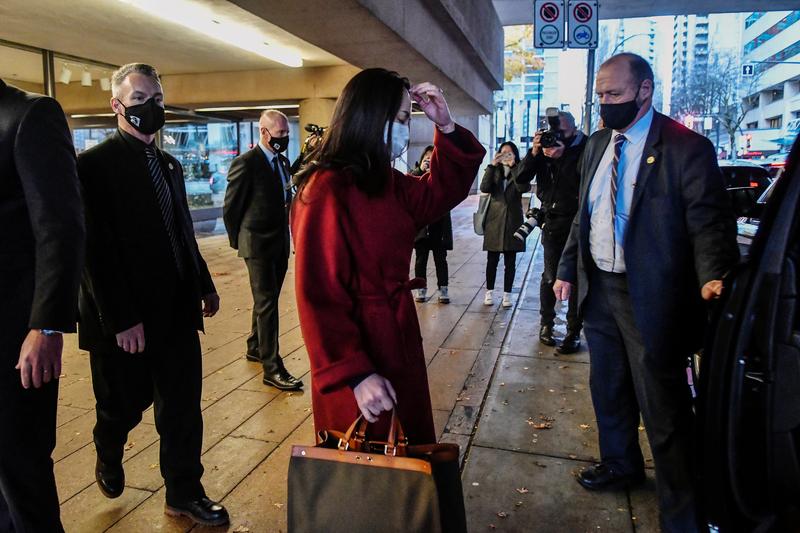VANCOUVER (Reuters) – A Canadian court is expected to hear from additional police witnesses on Friday as the second week of witness testimony wraps up in the case to extradite the chief financial officer of Chinese telecoms giant Huawei to the United States.
The defense team will finish examining Canada Border Services Agency (CBSA) superintendent Sowmith Katragadda, then prosecutors will likely question Royal Canadian Mounted Police (RCMP) constable Gurvinder Dhaliwal. Both men were involved in the investigation and subsequent arrest of Meng Wanzhou two years ago at Vancouver International Airport.
Meng, 48, was arrested on charges of bank fraud from the United States, where she is accused of misrepresenting Huawei Technologies Co Ltd’s [HWT.UL] dealings with Iran, putting one of its lenders, HSBC, at risk of violating U.S. trade sanctions.
She has denied the charges and mounted a defence, asking that her extradition be thrown out because of alleged collusion between Canadian and U.S. authorities among other reasons.
Testimony so far has focused on Meng’s interrogation by CBSA officers and her arrest by RCMP.
Her lawyers have attempted to prove abuses of process occurred during this period that should get her extradition thrown out, while prosecutors have countered that Meng’s investigation and arrest followed usual procedures.
In particular, Meng’s lawyers have asserted that Canadian and U.S. authorities used the additional investigative powers of the CBSA to interrogate Meng without a lawyer present.
CBSA officers have testified their investigation was not directed by outside authorities, and would have taken place regardless of the outstanding warrant for her arrest.
Meng’s arrest has set off a diplomatic conflict between Ottawa and Beijing. Soon after her detention, China arrested Canadian citizens Michael Spavor and Michael Kovrig on espionage charges. The two men remain in detention.
On Thursday Prime Minister Justin Trudeau said he had no regrets about Canada’s decision to arrest Meng regardless of foreign policy implications, pointing to the “longstanding extradition treaty with our closest ally” and adding Canada’s laws can’t only be followed “when it’s convenient or when it’s easy.”
Source: Read Full Article
